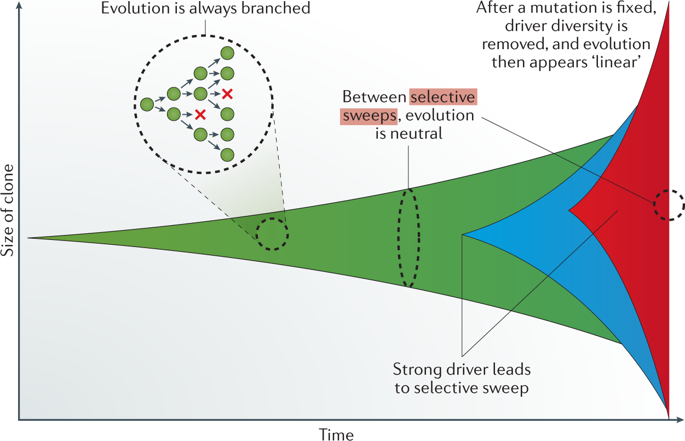Nature Reviews Genetics ( IF 39.1 ) Pub Date : 2019-03-27 , DOI: 10.1038/s41576-019-0114-6 Samra Turajlic 1, 2 , Andrea Sottoriva 3 , Trevor Graham 4 , Charles Swanton 1, 5, 6

|
To a large extent, cancer conforms to evolutionary rules defined by the rates at which clones mutate, adapt and grow. Next-generation sequencing has provided a snapshot of the genetic landscape of most cancer types, and cancer genomics approaches are driving new insights into cancer evolutionary patterns in time and space. In contrast to species evolution, cancer is a particular case owing to the vast size of tumour cell populations, chromosomal instability and its potential for phenotypic plasticity. Nevertheless, an evolutionary framework is a powerful aid to understand cancer progression and therapy failure. Indeed, such a framework could be applied to predict individual tumour behaviour and support treatment strategies.
中文翻译:

解决癌症的遗传异质性
在很大程度上,癌症符合由克隆突变、适应和生长速率定义的进化规则。下一代测序提供了大多数癌症类型遗传图谱的快照,癌症基因组学方法正在推动对癌症在时间和空间上的进化模式的新见解。与物种进化相反,癌症是一种特殊情况,因为肿瘤细胞群体庞大、染色体不稳定性及其表型可塑性的潜力。然而,进化框架是理解癌症进展和治疗失败的有力帮助。事实上,这样的框架可以用于预测个体肿瘤行为并支持治疗策略。





















































 京公网安备 11010802027423号
京公网安备 11010802027423号